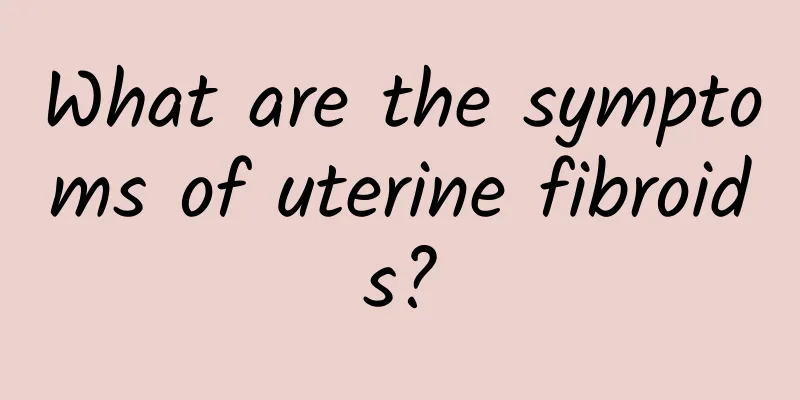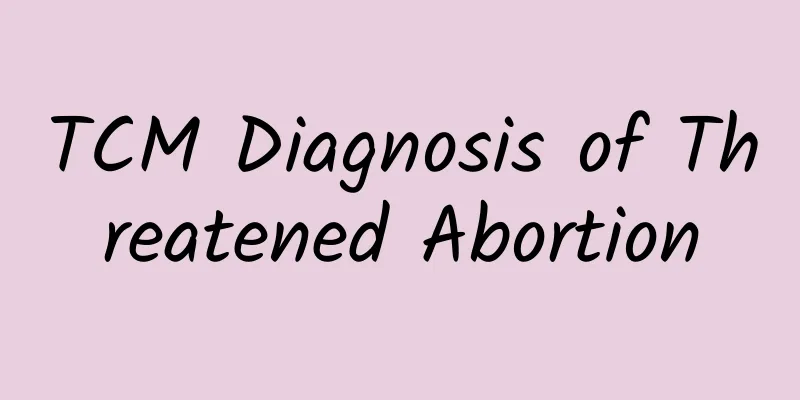What are the symptoms of uterine fibroids?

|
Symptoms of uterine fibroids may include menstrual irregularities, abdominal discomfort, and difficulty urinating. They may also affect fertility. If you experience these symptoms, it is recommended that you see a doctor as soon as possible to identify the cause and develop a treatment plan. 1. Abnormal menstruation. Uterine fibroids often cause excessive menstrual flow, prolonged or frequent menstruation, and even intermenstrual bleeding. This is because the fibroids affect the normal shedding of the endometrium or compress blood vessels. If abnormal menstruation persists and there are symptoms of anemia such as fatigue and dizziness, you need to go to the gynecology department for a checkup in time to identify the size and location of the fibroids. 2 Abdominal discomfort or pain. The growth of fibroids may cause the uterus to enlarge, which in turn may cause dull pain or a feeling of heaviness in the lower abdomen, or even acute severe pain, which is more common when the fibroids are twisted or necrotic. Especially for larger fibroids, you may feel a mass in the lower abdomen. At this time, you should seek medical attention as soon as possible to avoid delaying the condition. 3. Difficulty urinating or constipation. Uterine fibroids are located close to the bladder or rectum, which can cause symptoms such as increased urination frequency, urgency, urinary retention or constipation. This is due to the compression of nearby organs by the tumor. For people who continue to urinate or have abnormal bowel movements, especially women with abdominal distension, the cause should be determined as soon as possible through B-ultrasound and other examinations. 4. Fertility problems. If the fibroids are located in the uterine cavity or uterine wall, they may interfere with embryo implantation or fetal development, leading to infertility, miscarriage or premature birth. For women of childbearing age, gynecological screening is recommended before pregnancy to ensure the health of the uterus. If you already have fertility problems, you can consult a doctor to assess whether surgical treatment such as myomectomy is needed. As mentioned above, the symptoms of uterine fibroids vary from mild to severe, and the specific manifestations vary from person to person. Women need to be vigilant and have regular gynecological examinations to help early detection and scientific treatment, while also maintaining healthy lifestyle habits, such as maintaining weight and eating a healthy diet. Timely treatment after diagnosis can not only improve symptoms, but also prevent complications and improve quality of life. |
<<: Abnormal leucorrhea, blood, and no menstruation
>>: Will I get cancer after having an abortion for a hydatidiform mole?
Recommend
Female stars eat oatmeal porridge and drink lemon water for three meals to lose weight... Doctor: If you want to be a long-legged and slender-waisted beauty, you need to know these landmines
Recently, a beautiful star passed away suddenly. ...
What to do if adenomyosis dysmenorrhea becomes more and more painful
Dysmenorrhea is the most obvious symptom of adeno...
3 ways for sedentary office workers to slim down their thighs and buttocks
Have you ever had your butt glued to your chair s...
Leg edema, dare not wear short skirt to do spleen meridian leg exercise
As the weather gets warmer, many women tend to we...
Is it good to drink milk if you have Bartholin's gland?
Is it good to drink milk for Bartholinitis? Barth...
Why do I keep gaining weight if I eat boiled vegetables and no starch? Eat like this to prevent sarcopenia with balanced nutrition
Some seniors would ask nutritionists: "I onl...
What should I do if my menstruation is delayed due to improper diet?
What should I do if my menstruation is delayed du...
What are the early symptoms of uterine fibroids? What does uterine fibroids feel like?
What are the early symptoms of uterine fibroids? ...
Will cervical erosion affect pregnancy? Ways to prevent cervical erosion
Will cervical erosion affect pregnancy? For marri...
Learn more about the common causes of adnexitis.
What are the common causes of adnexitis? It is ne...
How to effectively prevent endometrial tuberculosis
Everyone is very surprised about the disease of e...
What are ovarian cysts and teratomas and what are their symptoms?
What is an ovarian cyst or teratoma? What are the...
Summer slimming tips Wu Mingzhu recommends: Honey Cassia Tea
In the hot summer, losing weight seems to be an i...
Exercise methods for patients with congenital absence of vagina
In daily life, congenital absence of vagina has a...
Weight loss plateau? Nutritionist: Basal metabolism is the key (Part 1)
When you ask someone how they gained weight, you&...









